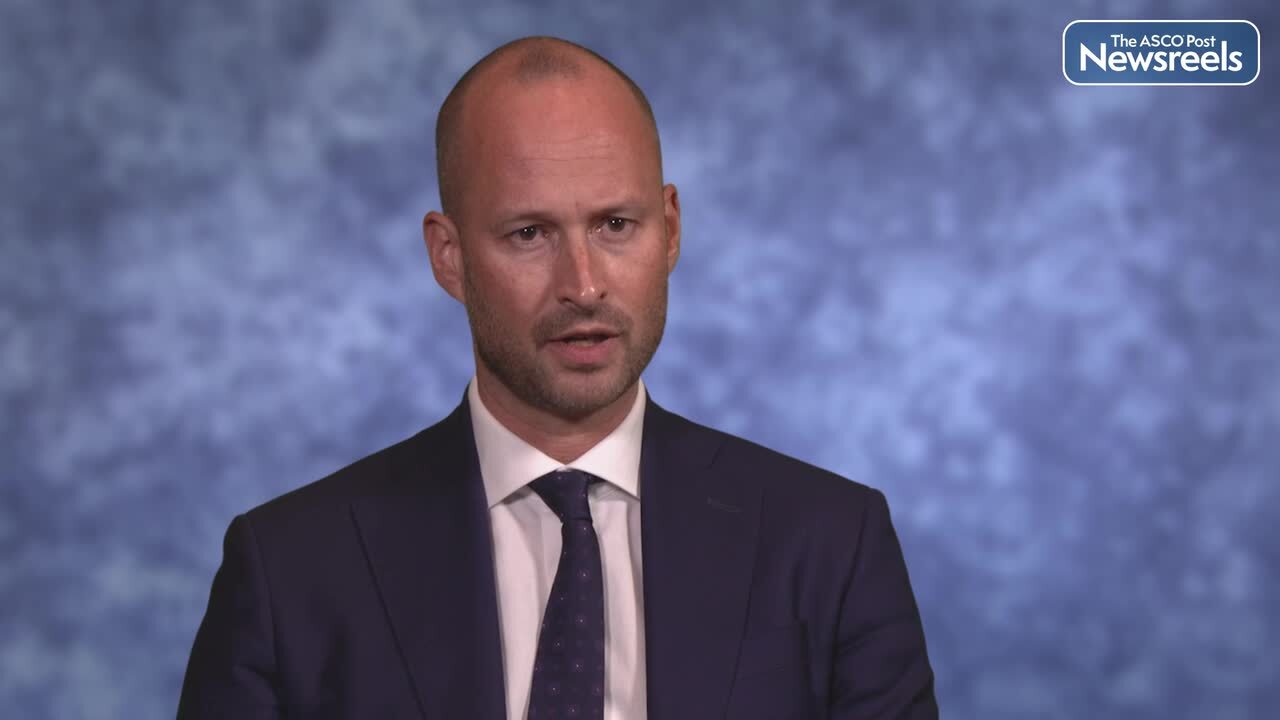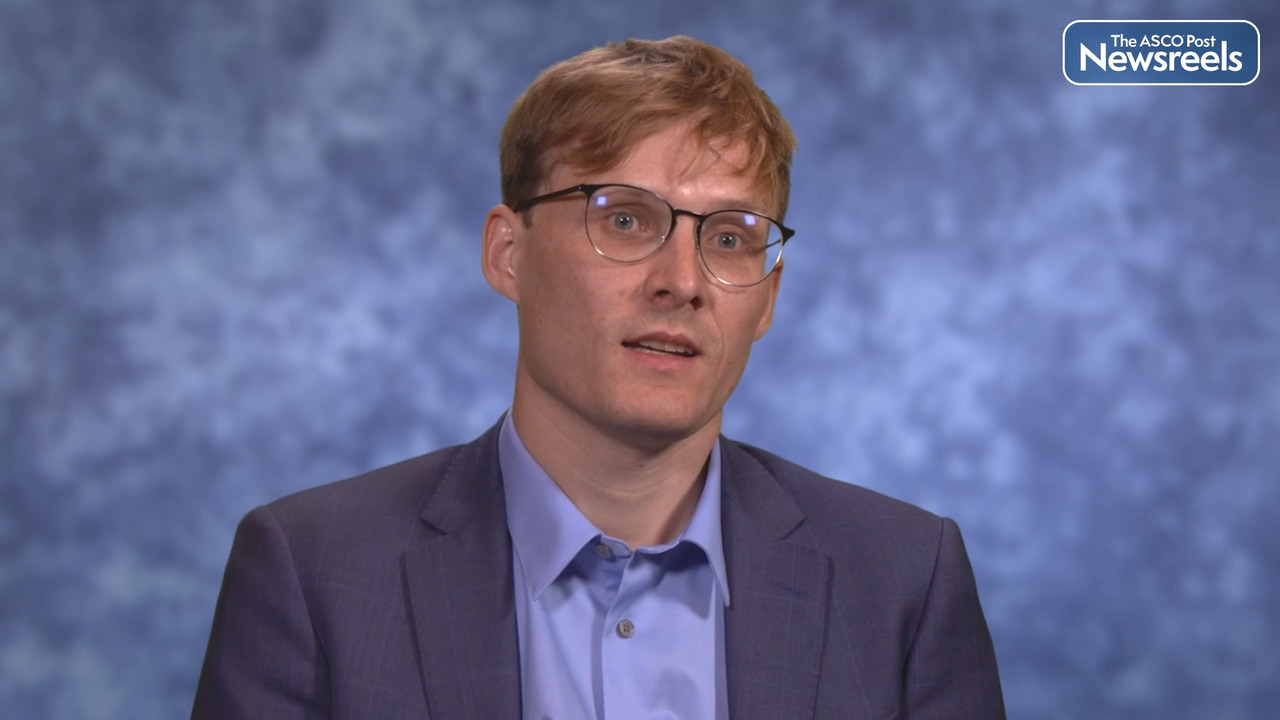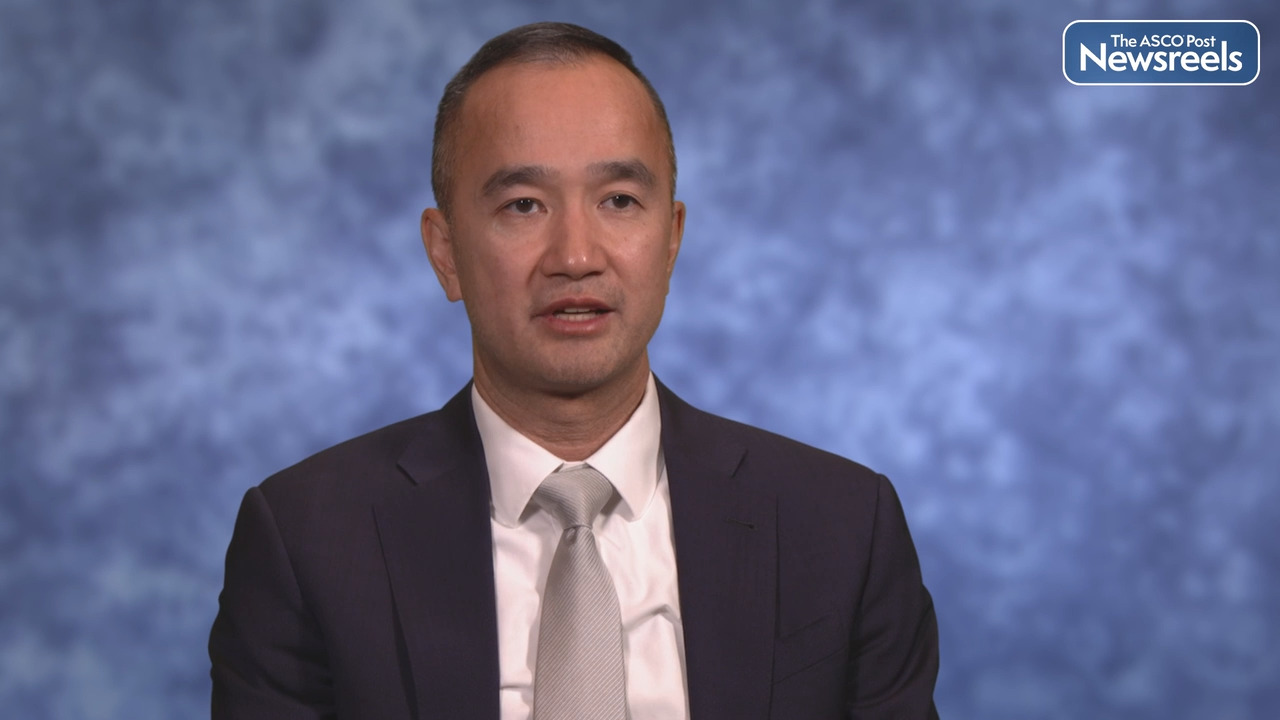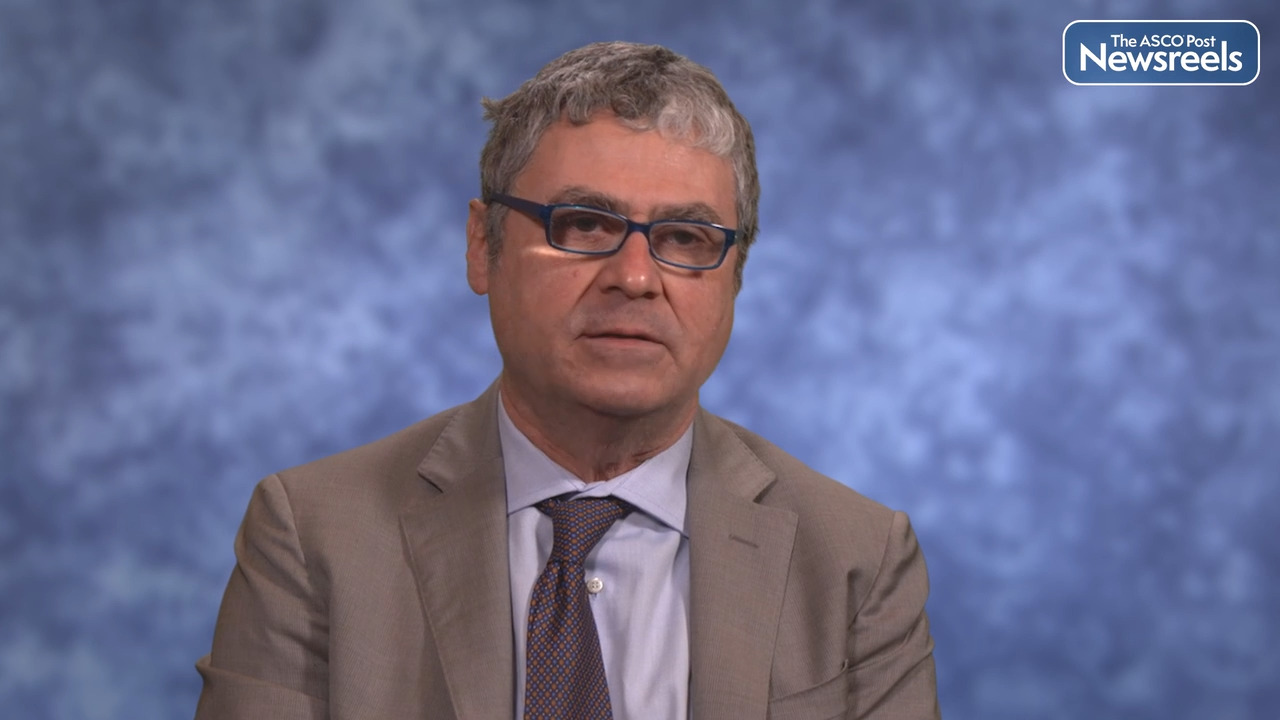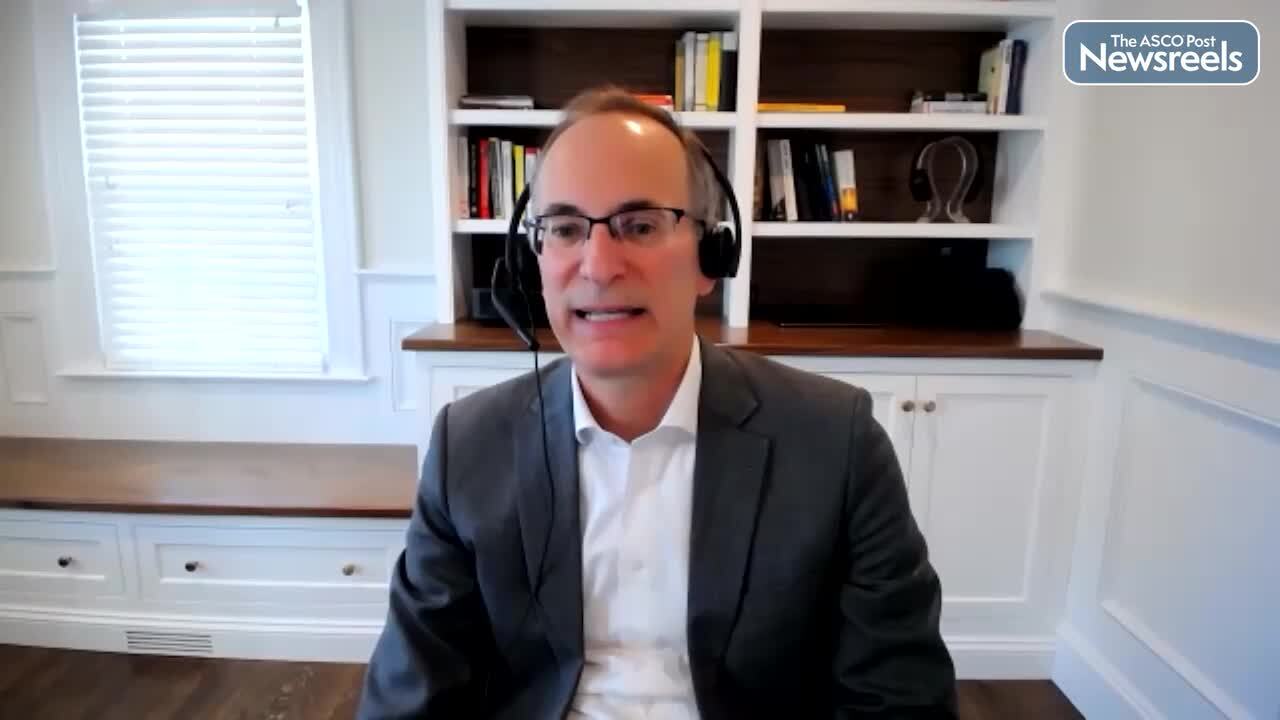Alicia K. Morgans, MD, MPH, on Prostate Cancer: Profiles of Patients and Their Journeys
2022 ASCO Genitourinary Cancers Symposium
Alicia K. Morgans, MD, MPH, of Dana-Farber Cancer Institute, discusses findings from the largest digital survey conducted in patients with prostate cancer, allowing identification of unmet needs in the patient journey. Preliminary data suggest that lower rates of screening may correlate with higher rates of symptoms at diagnosis and potentially later-stage diagnosis.
The ASCO Post Staff
Axel S. Merseburger, MD, of the University Hospital Schleswig-Holstein, discusses results from a phase IIIb study of chemotherapy-naive patients with metastatic castration-resistant prostate cancer who have been treated with docetaxel plus prednisolone and experienced disease progression on enzalutamide. The data suggest that continued enzalutamide plus docetaxel improved progression-free survival compared with placebo plus docetaxel (Abstract 15).
The ASCO Post Staff
Hielke-Martijn de Vries, MD, of the Netherlands Cancer Institute, discusses phase II findings on the use of atezolizumab with or without radiotherapy for patients with advanced squamous cell carcinoma of the penis. The study was designed to address the poor prognosis for this disease by exploring whether a protracted schedule of radiotherapy for locoregional disease, in combination with immunotherapy, could improve outcomes (Abstract 3).
The ASCO Post Staff
Kim Nguyen Chi, MD, of the University of British Columbia, BC Cancer-Vancouver Center, discusses first phase III results from the MAGNITUDE study, which explored the use of the PARP inhibitor niraparib with abiraterone acetate and prednisone as first-line therapy in patients with metastatic castration-resistant prostate cancer with and without homologous recombination repair gene alterations (Abstract 12).
The ASCO Post Staff
Alfredo Berruti, MD, of Italy’s University of Brescia, discusses the first study to give adjuvant mitotane to patients with adrenocortical carcinoma, a rare disease with a high risk of relapse after radical surgery. Although theoretically this treatment may be clinically worthwhile, the findings suggest that the need for adjuvant mitotane should always be discussed on a case-by-case basis by the multidisciplinary team, and more study is warranted (Abstract 1).
The ASCO Post Staff
Matthew R. Smith, PhD, MD, of Massachusetts General Hospital Cancer Center, discusses overall survival findings from the ARASENS trial, which assessed the efficacy of the androgen receptor inhibitor darolutamide vs placebo in combination with androgen-deprivation therapy and docetaxel for patients with metastatic hormone-sensitive prostate cancer (Abstract 13).
